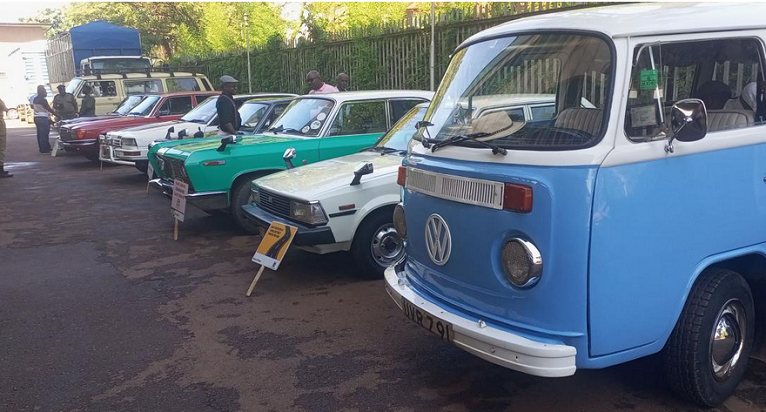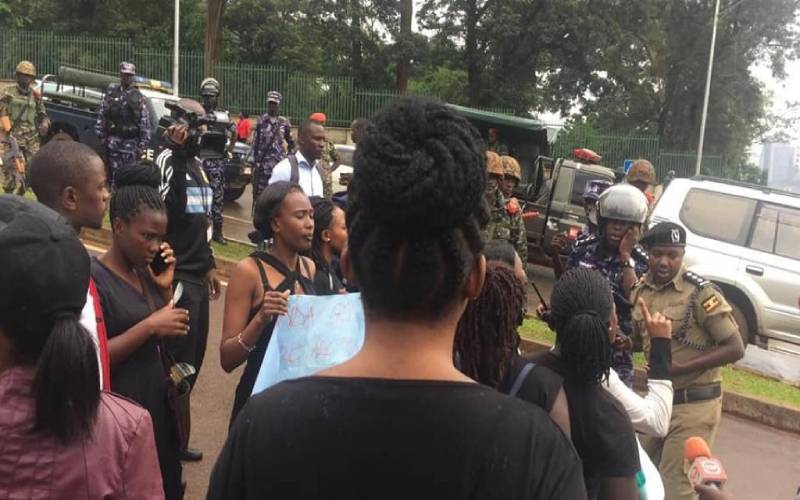Owners and drivers of vintage cars in Uganda have increased pressure on the government to incorporate old registration numbering systems in the automated vehicle register.
Vintage cars are those considered belonging to older generations and of high value because of their rarity today.
Most of these vehicles, mainly cars, vans, scooters and motorcycles bear the six character registration numbers in the form UAA 001, while those registered in 1999 and later are numbered as UAA 001A on top of the characters being smaller.
However, over the last three years, the owners of the vintage cars have been forced to replace the registration plates with the current ones so as to be on the better side of the laws.
Frederick Nsibambi, the Deputy Executive Director, Cross Culture Foundation of Uganda says the cars, like any other vintage item art of the heritage of Uganda and must be preserved. He was speaking at the launch of a campaign by the CCFU and Uganda Railways Corporation, that aims to locate historic properties using vintage cars as the point of attraction.
The Vintage Collectables Rotary Fellowship (VCRF), a group of enthusiasts of old cars handed over a copy of the petition they earlier gave to parliament to Gen. Edward Katumba Wamala, the Ministry of Works and Transport a copy of the petition over the registration numbers.
Mackay Mwebingwa, the Chairman of the group, that they are finding it difficult to sell, buy or restore the vehicles or even pay for their insurance since the government, through Uganda Revenue Authority, automated the register.
Unfortunately, he said, while some owners have complied so as to keep their cars on the road, the vehicles have lost their identify and attractiveness, because the old numbers are part of what makes them more admirable.
This also increases the already high cost of maintaining the vehicles.;
Mwebingwa said that they find it hard to maintain the cars especially due to the roads infrastructure which was meant to cater for fewer vehicles. He said, for example, that the technology used in such vehicles was based on how crowded the roads were, because they relied on sacking fresh air for the engine to keep running well.
However, currently, with the numbers growing and the roads remaining at the same width, the vehicles usually heat up especially in the jammy roads of Kampa.
Minister Katumba Wamala admitted the need to intensify protection of old properties, be it buildings, cars or railway equipment, not only for tourism, but also to be a source of inspiration for the current civil engineering fraternity.
He said, is the reason architects and engineers should do more and deeper studies of the old buildings that have not collapsed, and ask what kind of technology could have been used at the time.
Gen. Wamala said the vintage cars are a source of nostalgia for those that used them as when they were still in plenty and actively being used in transport, wondering how the owners manage to maintain them since their parts are also hardly being manufactured.
The cars have been vital in the promotion of tourism and are therefore a national heritage. While a few cars are driven by their owners daily on public roads, many are preserved for public shows as a form of sensitisation about Uganda’s heritage.
The partnership with Uganda Railways was driven by the fact that the corporation has some of the oldest items especially train parts and accessories used in the industry since the turn of the 19th century.
Sarah Nambasa, the Acting Managing Director at URC, said the agency is best placed to lead this campaign because of the many unique equipment they have preserved, either functioning or broken down.
She said, for example, that the Station Building on Nasser Road has remained intact almost 100 years since it was constructed, as well as the Station House in Jinja, while serving as benchmarking subjects.
-URN





